DEPRESSIVE SYMPTOMS AND THE COPING MECHANISM
Editor: Oluseyi Elizabeth Odudimu
Depression or major depressive disorder is a mental illness that causes a feeling of unhappiness, loneliness, hopelessness and helplessness, which usually lead to suicidal thoughts or actions.
It affects individual thinking feelings and functions. Depression is a physical and emotional weight that undermines the inner peace experience. It causes hopelessness in the soul and influences behaviour by putting the sufferers in darkness.
In most cases, depression extensively interferes with the sufferers’ daily life and at a point; the thoughts of suicide will begin to reoccur. Of course, sometimes we all experience sadness, loneliness or sorrow while mourning our loved ones or being entangled in very challenging situations, that is not depression, but if we don’t let it go, depressive symptoms will surface.
It doesn’t matter who you are! Anyone can be subjected to depression either young or old races and single or married socioeconomic classes, celebrity and it can crop up at any time; nevertheless, the research confirmed that women are more vulnerable to mental illness.
The causes of depression are not yet ascertained. On the other hand, the research established that depression is caused by a mixture of genetics: some peoples’ blood is involved in causing depression
Alarming risk factor
- Grief or bereavement
- Painful and long-time medical conditions may trigger depression and in some women after childbirth or at menopause hormonally induced depression can surface.
- Drug or alcohol abuse
- Biological: physical changes in the brain or alteration in the function of neurotransmitters and the interaction with neurocircuits, which can affect mood stability.
- Environmental: people that have one way or the other exposed to abuse or neglect violence, or poor quality of life are more vulnerable to depression.
- Individual Personality is also a risk factor, low self-esteem, being overwhelmed by stress easily and people with persistent hopelessness are at greater risk of developing depression
How to diagnose Depression
An interview and a physical examination can be used as a diagnostic evaluation to get familiar with detailed indications, cultural and environmental factors, and the person’s medical and family history and all this will be used to arrange the person’s treatment.
Please seek help if you notice you’re having at least 4 of the depressive symptom outlined
- Bad temper, distressed or impatience
- Change in sex life
- Loss of mind, lack of concentration, inability to make proper decisions
- Sleeplessness or sleeping excessively
- Loss of appetite and/or add or lose weight, eating too much/too little
- Feeling exhausted and loss of energy that may cause an unexplainable cry
- Doomed to failure or worthless sensation
- Abandonment of social lifestyle and usual activities they enjoyed
- Thoughts of death or suicide
The consequences of untreated depression can be highly emotional behaviour and health problems, which may interfere with every area of the sufferer’s life.
Ensure you see your doctor for proper diagnoses and they would provide you with the right treatment.
Treatments that your doctor may introduce
- Medications, such as antidepressants may be prescribed
- Electroconvulsive Therapy (ECT)
Prevention
- Set self stepladder to manage stress, enlarge your resilience and boost your self-esteem.
- Reach out to family and friends, especially in times of emergency or episode.
- Get treatment immediately after you spot the sign of depression and you will be able to stop it from aggravating.
- Ensure that you get continuance treatment
- Regular exercise can also help create a positive feeling and improve mood.
- Get enough quality sleep regularly
- Eating a healthy diet and avoiding alcohol (a depressant) can also help reduce symptoms of depression.
- Research recommends foods rich in folic acid (such as avocado and spinach) and omega-3 acids (such as salmon and tuna), which could help to ease the symptoms of depression
Recommendation
In the African community, depression often goes undiagnosed and untreated and the symptoms are always different. We should have it at the back of our minds that everyone experiences depressive symptoms once
In a lifetime, but when the symptoms increase, please do not take it lightly, seek help!
Eat healthier, get enough sleep, and abstain from alcohol.
Exercise often, speak to someone and get support from a mental health professional
Words of encouragement
Your ability to function normally with depression depends on you. “Self-help is natural antidepressants”. However, recent research shows that a positive mindset can easily control our thoughts and behaviour, which can predominantly control mood swings.
A positive mindset can predetermine your interpretation; a realistic approach to life events can help you overcome.
Low-grade feelings of unhappiness and capacity to control thoughts and actions like suicide or persistent automatic thought of nagging.
If you need help, kindly BOOK A SESSION with US NOW…
Speak UP. Stay tuned for more updates.
